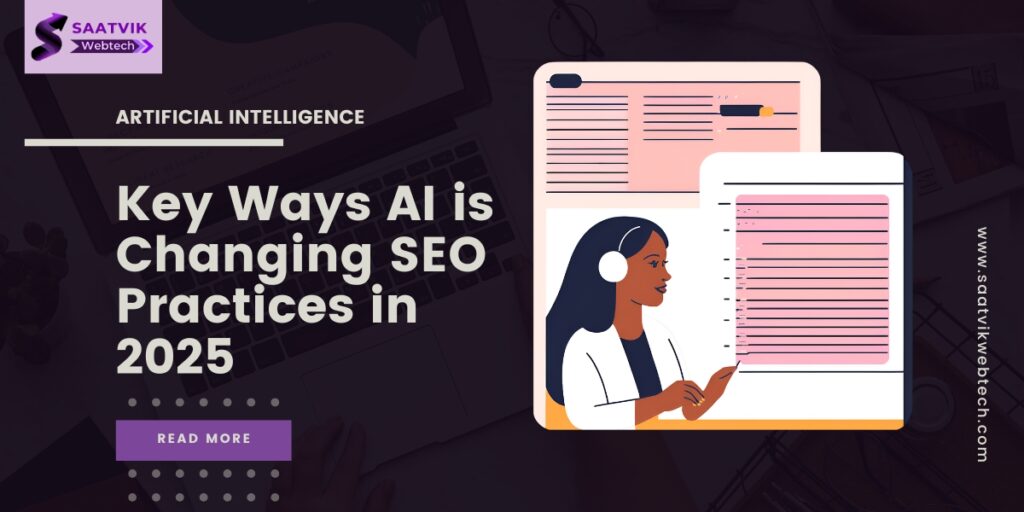AI & SEO 2025: Understanding the Big Changes to Your Strategy
Artificial intelligence (AI) isn’t just a futuristic idea anymore; it’s actively changing how we work, interact, and especially how we find information online. If you’re involved in digital marketing or managing a website, understanding how AI impacts Search Engine Optimization (SEO) isn’t just optional in 2025—it’s becoming essential.
The world of SEO is shifting fast, thanks to AI advancements in search engines like Google and the tools available to us. But what does this actually mean for your website and your strategy to get found online? Let’s break down the key ways AI is transforming SEO right now.
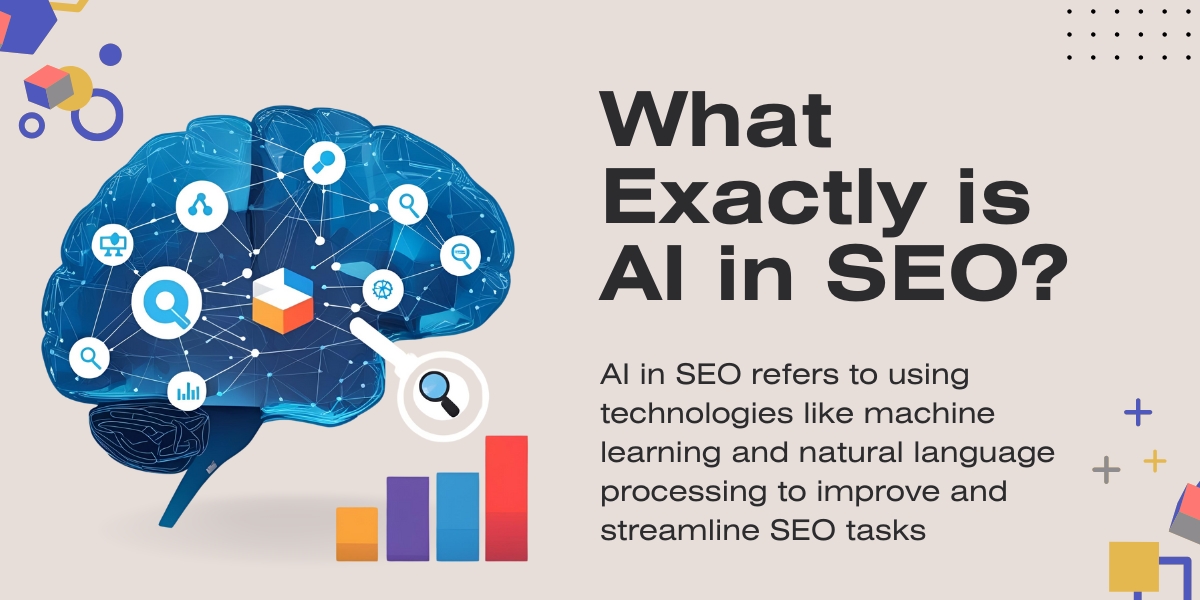
What Exactly is AI in SEO?
AI in SEO refers to using technologies like machine learning and natural language processing to improve and streamline SEO tasks. Think of it as giving your SEO efforts a major brain boost! AI can analyze massive amounts of data, identify complex patterns in search behavior, understand language nuances, and even predict trends far faster and often more accurately than humans can alone.
Let’s try an analogy:
- Your SEO strategy is like navigating a huge, ever-changing city (the internet). The goal is to find the best routes (keywords) to reach specific destinations (your target audience).
- AI is your super-smart GPS and traffic analysis system. It not only shows you the map but also analyzes real-time traffic (search trends), predicts roadblocks (algorithm changes), suggests efficient routes you might have missed (keyword opportunities), and helps you understand the local language (user intent).
It works by learning from data to automate tasks, generate insights, and help make your website more visible and effective in search results.
Why Should You Care About AI in SEO? Top Benefits Unveiled
Integrating AI into your SEO isn’t just about chasing the latest tech trend; it offers tangible advantages for your online presence. Here’s why you should pay attention:
- Increased Efficiency (Time & Sanity Saver!): AI can automate many time-consuming SEO tasks like initial keyword research, technical site audits, data analysis, and report generation. This frees up your valuable time to focus on higher-level strategy, creativity, and complex problem-solving.
- Deeper Insights (Understand More): AI algorithms can sift through vast datasets to uncover hidden patterns, understand subtle user intent behind search queries, identify emerging trends, and spot gaps in your competitors’ strategies that you might otherwise miss. This leads to smarter, data-driven decisions.
- Enhanced Content Optimization (Smarter Content): AI tools can help analyze top-performing content, suggest relevant subtopics and keywords, check for readability, and ensure your content aligns precisely with what users are searching for and what search engines prioritize.
- Improved User Experience (Happier Visitors): AI can help personalize website experiences for visitors based on their behavior. It also plays a role in optimizing technical aspects like site speed, which keeps users engaged – a crucial factor for modern SEO success.
- Staying Competitive (Don’t Get Left Behind): Your competitors are likely exploring or already using AI in their SEO efforts. Leveraging AI helps you keep pace, maintain your visibility, and potentially gain a competitive advantage in the search results.
In a nutshell, AI helps make your SEO efforts smarter, faster, and more effective, ultimately driving better results.
Key Ways AI is Changing SEO Practices in 2025
So, how does this AI revolution translate into specific changes in day-to-day SEO work? Here are five core areas being transformed:
1. AI-Powered Content Creation & Optimization (The Content Shift)
AI is significantly impacting how website content is produced and refined.
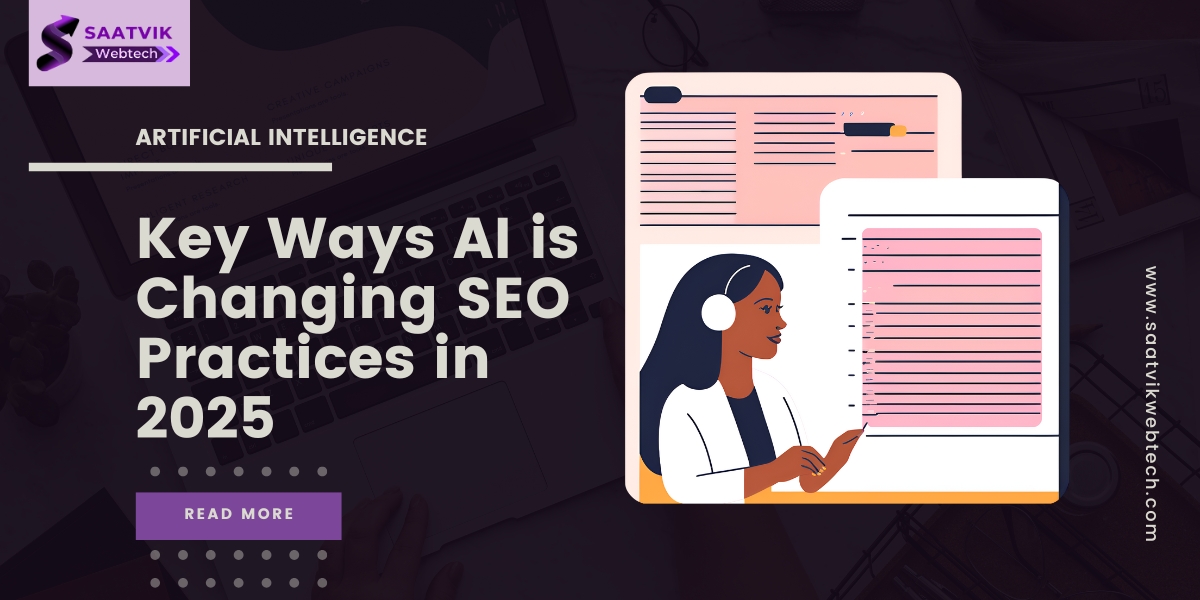
- How AI Helps: Assists with brainstorming topics, generating outlines, drafting initial content, optimizing text for specific keywords, and analyzing existing content for improvement opportunities.
- Key Impacts:
- Faster content drafting and ideation cycles.
- Deeper optimization based on data and competitor analysis.
- Improved content relevance to user intent.
- The Human Role (Crucial!): AI drafts often lack nuance, brand voice, and genuine expertise. Human oversight is essential for fact-checking, adding unique insights, ensuring E-E-A-T (Experience, Expertise, Authoritativeness, Trustworthiness), strategic direction, and originality.
2. Smarter Data Analysis & Insight Generation (Seeing the Bigger Picture)
AI’s analytical power unlocks a deeper understanding of the search landscape.
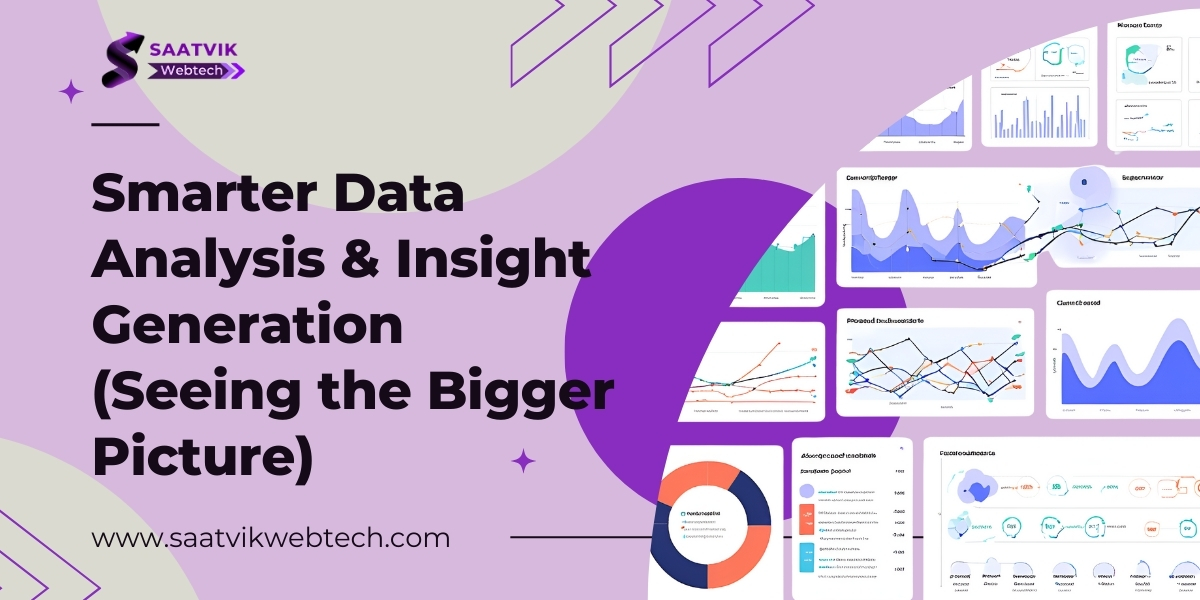
- How AI Helps: Processes huge datasets to understand search intent, map relationships between topics (topical authority), predict future trends, and analyze competitor performance.
- Key Impacts:
- Moves beyond surface-level keywords to grasp user intent.
- Helps build comprehensive content strategies around topics.
- Provides predictive insights for proactive planning.
- Uncovers competitor weaknesses and opportunities.
- The Human Role: Interpreting the complex insights generated by AI and translating them into actionable SEO strategies and business decisions.
3. Automated & Proactive Technical SEO (Keeping Your Site Healthy)
AI streamlines the often complex and tedious tasks involved in technical SEO.

- How AI Helps: Automates technical website audits, identifies crawl errors, broken links, checks page speed (Core Web Vitals), validates schema markup, and monitors site health.
- Key Impacts:
- Faster detection and diagnosis of technical issues.
- Enables continuous monitoring and optimization.
- Assists in improving crucial Core Web Vitals scores.
- Simplifies schema implementation for better search engine understanding.
- The Human Role: Overseeing the automated processes, implementing the recommended fixes (especially complex ones), and ensuring technical changes align with overall strategy.
4. Adapting to AI Overviews & Answer Engines (The Changing SERP)
The look and function of search engine results pages (SERPs) are changing, with AI providing direct answers.
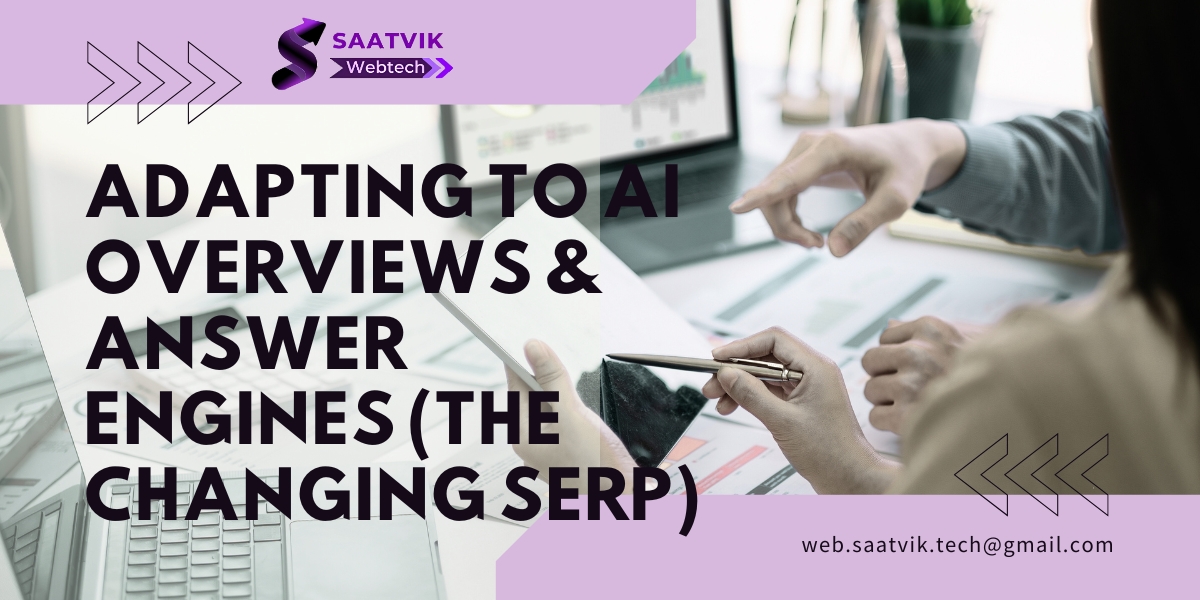
This is a major shift to understand:
- SERP Changes: Google’s AI Overviews provide direct, summarized answers for many queries, potentially reducing clicks to individual websites.
- “Zero-Click” Impact: Users may get their answers without leaving the search results page more often.
- Focus on AEO: A new goal emerges alongside SEO: Answer Engine Optimization (AEO). This involves structuring content clearly and authoritatively so it’s suitable for inclusion in these AI summaries.
- Content Structure is Key: Clear headings, concise language, lists, and directly answering questions become even more important for visibility in AI Overviews.
5. Enhanced User Experience Through Personalization
AI enables websites to offer more tailored and engaging experiences, which directly benefits SEO.
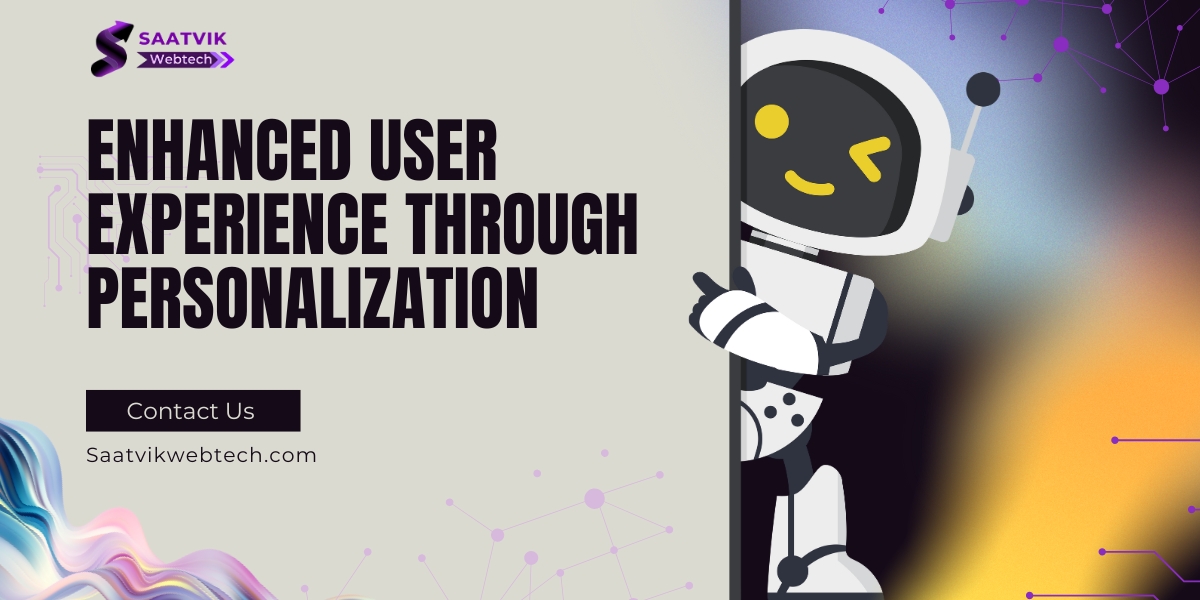
- How AI Helps: Analyzes user behavior to enable personalized content recommendations, helps optimize website navigation, and contributes to faster loading times.
- Key Impacts:
- Allows for dynamic content tailored to individual users.
- Improves site navigation and usability.
- Boosts user engagement signals (time on site, interaction rates).
- Contributes positively to Core Web Vitals and overall site performance.
- The Human Role: Defining the personalization strategy, ensuring ethical use of user data, and using AI insights to make meaningful UX improvements.
Key Considerations for Your AI SEO Strategy
As you start incorporating AI, keep these crucial points in mind:
- Balance AI & Human Expertise: Treat AI as a powerful assistant, not a replacement. Combine its analytical strengths with human intuition, creativity, strategic thinking, and ethical judgment.
- Focus on Quality & E-E-A-T: AI or not, search engines increasingly prioritize high-quality, original content demonstrating Expertise, Experience, Authoritativeness, and Trustworthiness. Use AI to enhance this, not fake it.
- Prioritize User Experience: Use the insights AI provides to genuinely improve your website for your visitors. Faster load times, easier navigation, and relevant content are always good for SEO.
- Stay Informed & Adaptable: The field of AI and its application in SEO is evolving incredibly quickly. Commit to continuous learning and be ready to adapt your strategies as needed.
- Ethical Use is Non-Negotiable: Be mindful of user privacy when using personalization features. Be transparent where appropriate, and avoid using AI to generate spammy or misleading content.
Choosing Your Approach: Embracing AI Wisely
Ready to dip your toes into AI for SEO? Here’s a simple approach:
- Step 1: Define Your Goals: What specific SEO challenges do you face? Are you struggling with content volume, technical audits, keyword research, or understanding user behavior? Identify where AI could provide the most value.
- Step 2: Assess Your Resources: Consider your budget for potential AI tools (many have free or trial versions) and your team’s current technical comfort level. Start with tools and techniques that match your capabilities.
- Step 3: Start Small & Experiment: You don’t need to implement every AI technique overnight. Pick one or two areas (like using an AI assistant for content outlines or an automated tool for technical checks) and test the results.
- Step 4: Focus on Value, Not Just Automation: The goal isn’t just to automate tasks but to achieve better SEO outcomes. Measure the impact of AI implementation on your key metrics (rankings, traffic, engagement, conversions).
Conclusion: Your AI SEO Journey Starts Now!
So, there you have it! AI is undeniably reshaping the SEO landscape in 2025. From how content is created and analyzed to how technical issues are managed and even how search results look, the changes are significant.
Quick Recap:
- AI in SEO uses smart tech to analyze data, automate tasks, and gain deeper insights.
- It offers benefits like increased efficiency, better analysis, smarter content optimization, improved UX, and staying competitive.
- Key changes involve AI-assisted content, deeper data insights, automated technical SEO, adapting to AI Overviews, and enhancing personalization.
- Success lies in balancing AI capabilities with human expertise, focusing on quality (E-E-A-T), prioritizing users, staying adaptable, and using AI ethically.
Are you ready to explore how AI can enhance your SEO efforts? Don’t be intimidated! Start by understanding these key transformations and experimenting with how AI tools and techniques can fit into your workflow. The future of SEO involves a strategic partnership between human intelligence and artificial intelligence. Embrace the possibilities, stay curious, and unlock the potential for your online presence!
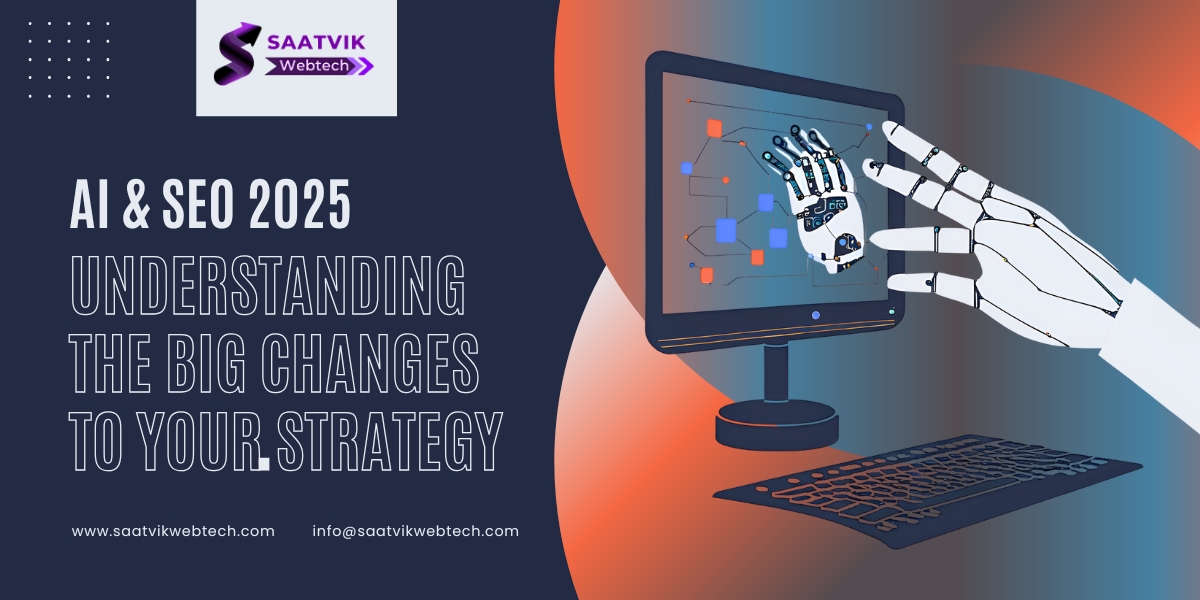
Still Curious? AI & SEO FAQs
Got more questions about AI’s role in SEO? We’ve got answers to some common ones:
- Will AI replace SEO professionals? Most experts agree: No. AI is changing the role of SEO professionals, automating some tasks and requiring new skills (like prompt engineering and data interpretation). Human strategy, creativity, critical thinking, and ethical oversight remain essential. AI is more of a powerful co-pilot than a replacement pilot.
- Is AI-generated content good for SEO? It isn’t very easy. While AI can generate text quickly, raw AI output often lacks originality, depth, E-E-A-T signals, and brand voice. Search engines like Google prioritize helpful, reliable, people-first content. AI content can be a starting point, but it almost always needs significant human editing, fact-checking, and enhancement to perform well and meet user expectations.
- Do I need expensive AI tools to start using AI in SEO? Not necessarily. While powerful paid platforms exist, you can start exploring with free or freemium AI tools (like chatbots for ideation or basic features in larger SEO suites). Understanding the concepts of how AI impacts SEO (like user intent, topical authority, AEO) is just as important as having specific tools.
- How do I optimize my content for Google’s AI Overviews? Focus on creating high-quality, comprehensive content that directly answers users’ questions clearly and concisely. Use good structure (headings, lists), demonstrate E-E-A-T, build topical authority, and implement relevant schema markup. Think about providing the best possible answer to likely queries.
- Is technical SEO still important now that AI can automate things? Absolutely, perhaps even more so! While AI can automate audits and identify issues faster, a strong technical foundation is critical for search engines (and AI systems) to crawl, understand, and rank your site effectively. AI tools help manage technical SEO more efficiently, but they don’t eliminate its importance.
